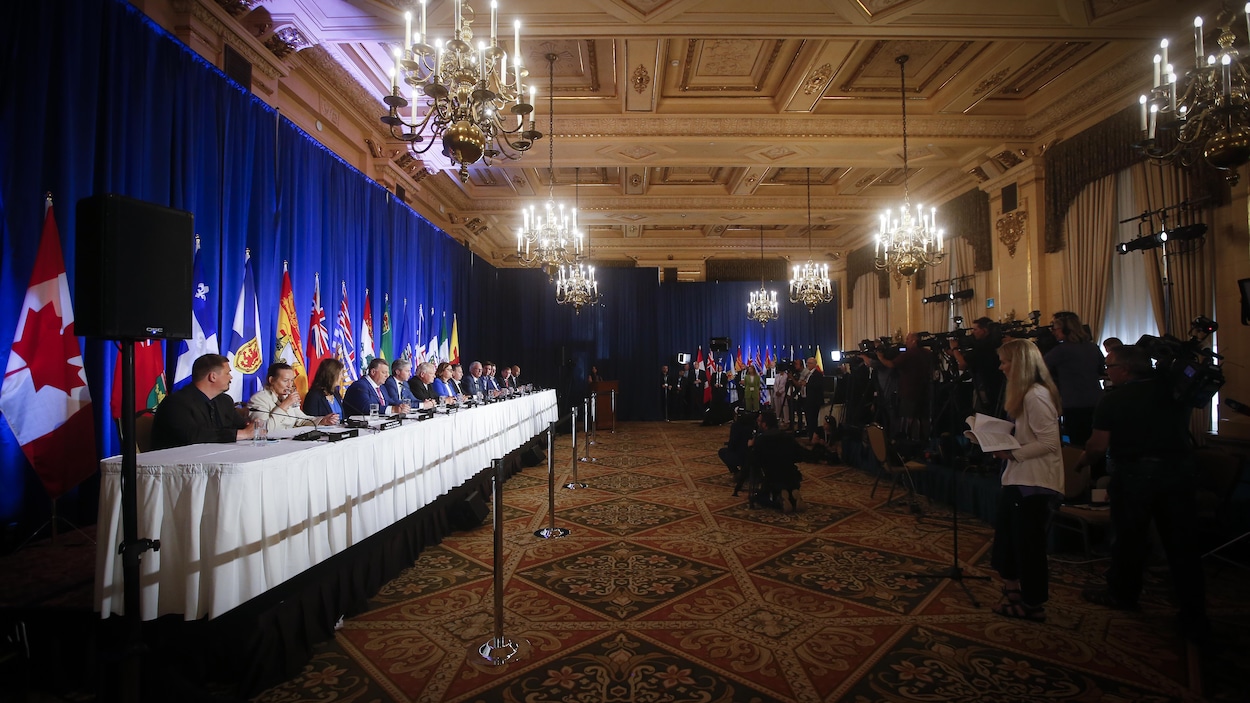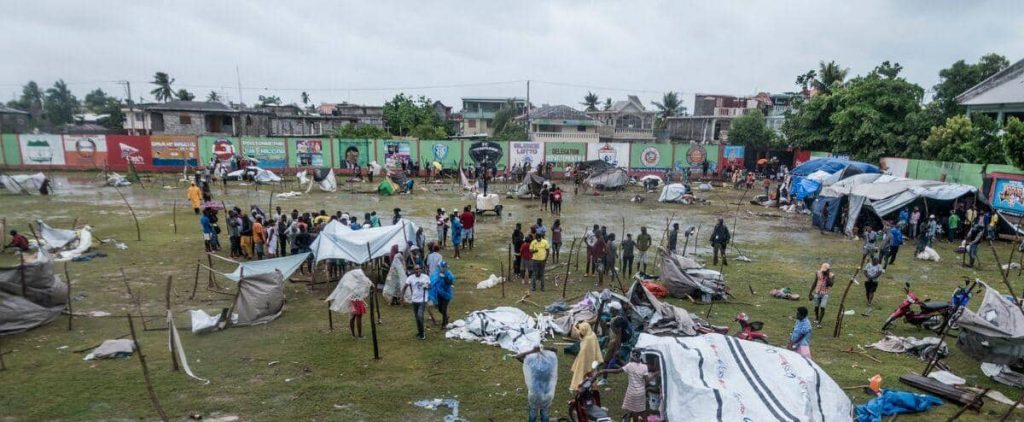Once again, Haiti is in crisis. Pictures from the Pearl of the West Indies that have been circulating on the web since August 14 are sadly reminiscent of those that happened on January 12, 2010. Eleven years later, the earthquake measuring 7.2 on the Richter scale came to memorialize once again. Painful for the Haitian people as well as the diaspora.
Although the Haitian authorities knew that other strong earthquakes would occur after the January 12, 2010 earthquake, the outreach and reconstruction did not have the expected effects in the south of the country.
Echoes of Quebec
During the January 12, 2010 earthquake, which devastated Port-au-Prince (the capital of Haiti) and other cities in the country, Quebecers overwhelmingly responded to the Caribbean nation’s distress call. Many doctors, nurses, police, soldiers, firefighters, religious people, hydro-power technicians in Quebec, and volunteers from La Belle County went to Haiti to participate in the rescue and reconstruction efforts. This flowing generosity and solidarity characterize this longstanding friendship between the two only French-speaking nations in America.
As in 2010, politicians here offered their condolences and support for Haitians.
Haitian victims in particular will need basic foodstuffs as well as first aid kits and masks. Organizations from the Haitian community in Montreal are already organizing to create a crisis unit.
Political crisis, health emergency, natural disasters
Although the history of Haiti is unique, it is punctuated by many important moments. of its independence, 1He is January 1804, the country faced many challenges and many pitfalls. Observing Haiti, we see that slavery, coups, dictatorship, natural disasters, and political instability have often characterized the island nation. On July 7, the country woke up to learn that President Jovenel Moss had been assassinated in his home. To make matters worse, even then it survived the coronavirus, the country had been experiencing a spike in COVID-19 cases for several weeks. In addition to instability and a health emergency, August in Haiti coincides with hurricane season.
The latest hurricane is named Grace. Tropical depression brought strong winds and torrential rains to coastal cities, which were already devastated by the earthquake. Over the next few weeks, a country without a president will have to juggle the resurgence of COVID-19 cases, providing international aid and, above all, organizing a general election as well as returning to school in a very fragile and very difficult context.
An explosion or an upcoming explosion?
According to the latest United Nations statistics, more than 70% of Haitians live on less than one US dollar a day. In a country where the inflation rate is at record levels, in the absence of a president, in addition to the scarcity of gasoline, the situation remains worrying for the coming days and weeks.
Knowing that in 2008 Haiti was the scene of hunger riots and that after the 2010 earthquake many people got cholera and others died, it would not be surprising to see that Haiti is the scene of popular revolutions or a very strong contamination of the COVID-19 cases.
In this country where 90% of the population is religious, Hurricane Grace spared Haiti little in giving it grace; Many Haitians keep the faith and others pray for better days. In this country full of twists and turns, its 12 million residents are holding their breath, as are the 4 million Haitian diaspora.
Between solutions and reconstruction
Since Saturday, Haitian authorities have counted more than 1,900 dead, 10,000 wounded and 60,000 homes destroyed. Face à l’ampleur de la catastrophe, le nouveau premier ministre haïtien, Ariel Henry, a décrété une période de deuil national (le pays vient de vivre un récent deuil national en raison de la mort du président), en plus de décré l’ Emergency.
The national road connecting Port-au-Prince to the earthquake-affected cities is occupied by bandits, with no major ports and airports in the disaster areas. This requires a huge logistical and organizational challenge.
Meanwhile, reconstruction appears to be a mirage for Haitians, who still do not have a national palace 11 years after the earthquake that killed more than 150,000 people.
In 2016, the cities devastated by the earthquake today experienced their first period of destruction due to Hurricane Matthew. The coastal towns of Les Caye and Jeremy, famous for their green landscapes and white-sand beaches, aren’t about to see tourists again anytime soon. The same goes for the seaside resorts of Ile-a-Vache (an island off the coast of Haiti) and its turquoise waters, which today give way to rubble and dust. I join the Haitians’ call for solidarity, and my thoughts are with this resilient people.
As Haitians say in Creole, “Men anpil chay pa lou”; In French, it means “all together, we are strong” and, as the Haitian motto says, unity is strength.
Sasha Wilkie Mirazil, student from montreal

“Total coffee aficionado. Travel buff. Music ninja. Bacon nerd. Beeraholic.”


![[IMAGES] Someone tries to set himself on fire outside Trump's courthouse](https://m1.quebecormedia.com/emp/emp/Capture_d_cran_2024_04_19_134909afe99a84-cf29-4f06-9dc2-9eb9ce265b46_ORIGINAL.jpg?impolicy=crop-resize&x=0&y=201&w=1074&h=604&width=1200)





More Stories
[IMAGES] Someone tries to set himself on fire outside Trump's courthouse
“Extreme” cruelty to animals: Two children sentenced for killing about twenty animals
Quebec delegation to Gaza: “We are committed to knowing that there is an element of risk”